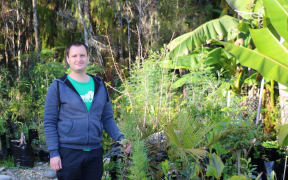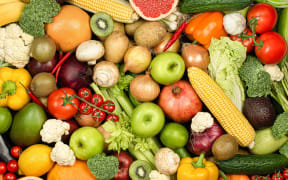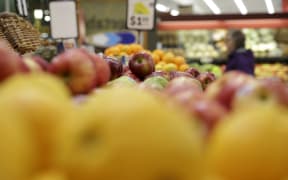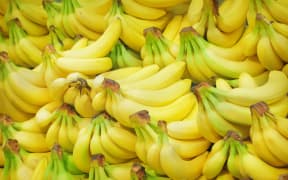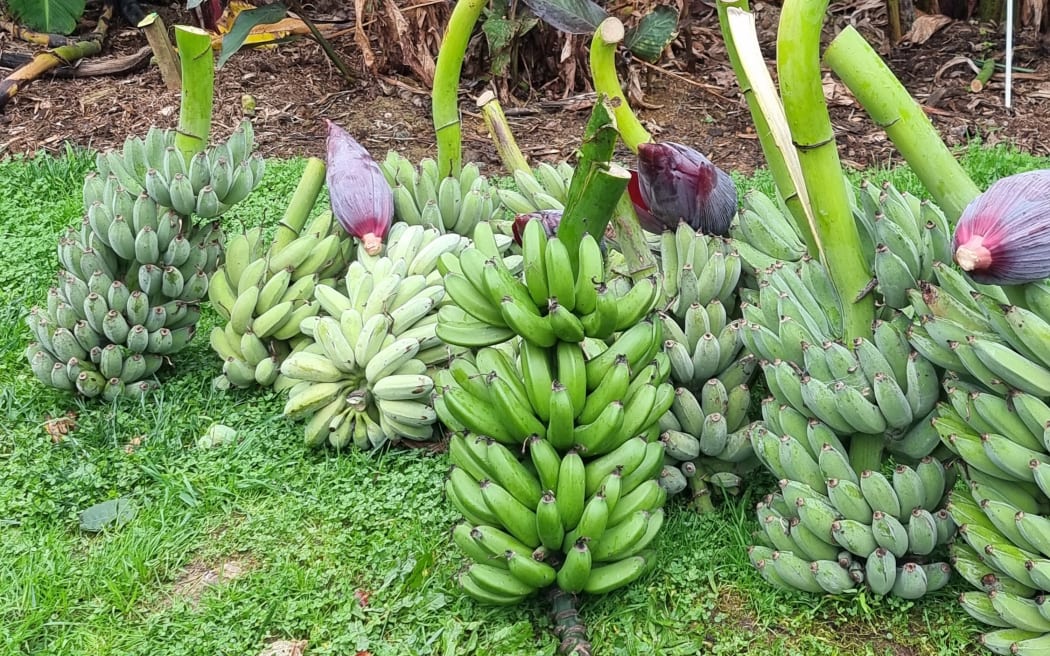
Tropical Fruit Growers of New Zealand chair Hugh Rose's banana harvest. Photo: Supplied / Hugh Rose
New Zealanders are bananas for bananas, but the country relies on imports from Mexico, Ecuador and the Philippines for its supply.
Some fruit growers hope to change that by sowing the seeds for a homegrown industry.
Aotearoa imports roughly 85,000 tonnes of bananas each and every year, according to the United Nations' Food and Agriculture Organization.
That supply is mostly stable, but changes in the weather make it hard for exporters to keep up with the enormous demand.
Dole New Zealand, the country's biggest supplier, gets its bananas from Ecuador and the Philippines.
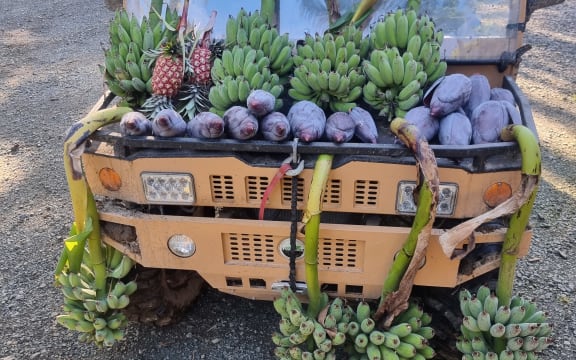
Tropical Fruit Growers of New Zealand chair Hugh Rose's banana harvest. Photo: Supplied / Hugh Rose
General manager Stephen Barton said it had been a challenging season for growers in both countries.
"Some importers are only getting 70 to 80 percent of what they need," he said.
"Ecuador, for instance, was very wet and flooding, and the Philippines has had the opposite, it's been a little dry."
Dole had largely kept up with the demand, but banana lovers were particularly hungry at this time of year, Barton said.
"What we're seeing is a shortage based on seasonal demand," he said.
"The weather is excellent and people are starting to eat a lot more bananas."
Dole sold 50,000 boxes a week, Barton said.
"We have containers arriving from Ecuador every week and we have a charter vessel from the Philippines every second week."
Does New Zealand rely on imports too much?
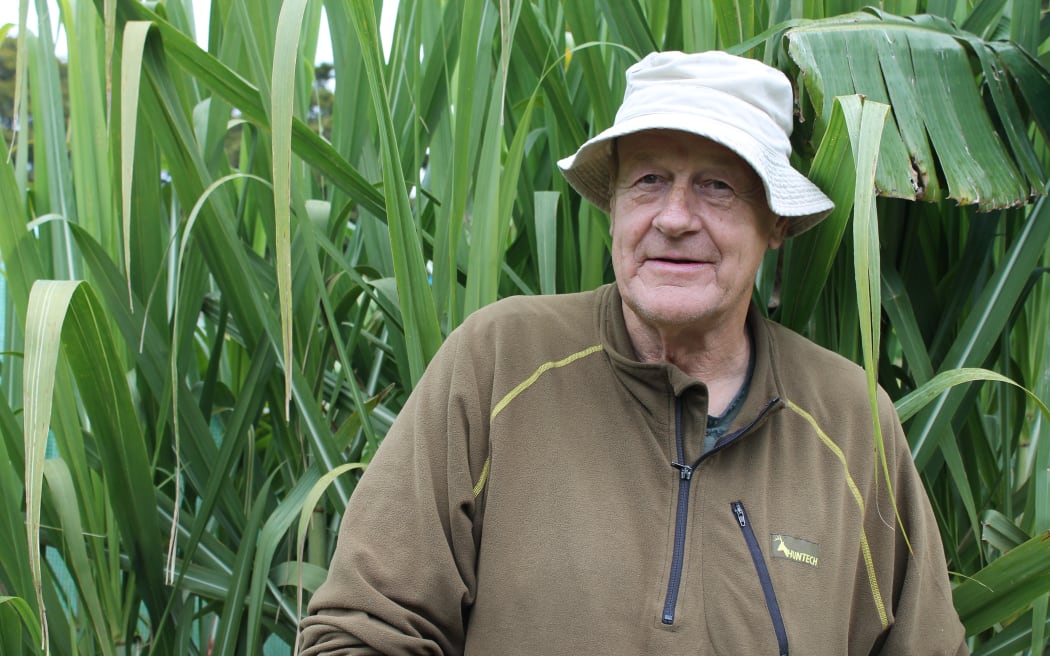
Tropical Fruit Growers of New Zealand chair Hugh Rose says banana stems make great cattle feed. Photo: RNZ/Carol Stiles
Tropical Fruit Growers of New Zealand chair Hugh Rose wondered if New Zealand relied too much on imports.
"My biggest concern is getting sufficient bananas to meet demand, particularly as overseas productivity starts to wane and the shipping costs [get higher]," he said.
"All of these things lead us to say if you want to eat bananas, particularly good ones, plant your own."
Bananas had some a-peeling qualities for New Zealand farmers, Rose said.
"Bananas aren't just grown for their fruit, they make awesome cattle feed.
"Every part of the banana is edible, so if you want winter feed, you can harvest the stems and chuck them over the fence to the cows and they'll be very grateful."
While bananas are typically grown in tropical areas, NIWA climate, atmosphere and hazards manager Nava Fedaeff said New Zealand's climate is warmer than it used to be.
"Bananas are certainly looking more and more viable if we look at our future warmer climate," she said.
"They are a tropical species so they like warmth, sunlight and higher humidity, and bananas are already grown in places like Northland, Waikato, Gisborne and Hawke's Bay."
Twice as long to grow in NZ, but better quality, says growers' group chair
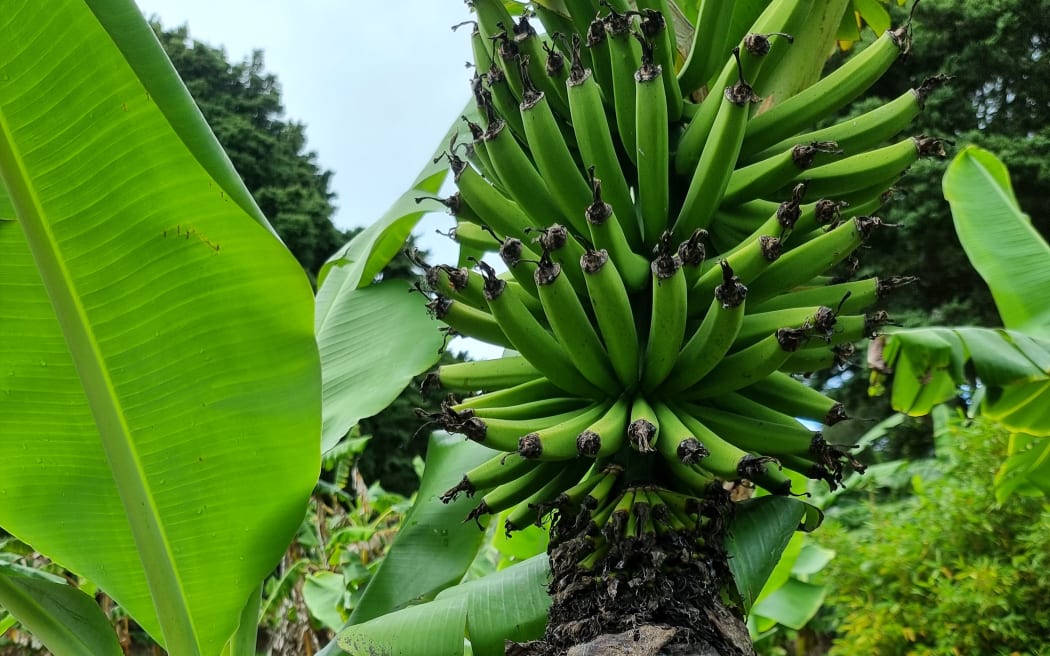
Tropical Fruit Growers of New Zealand chair Hugh Rose's banana harvest. Photo: Supplied / Hugh Rose
Self-described "banana enthusiast" Geoff Mansell already had 200 trees on his plantation.
He believed New Zealand should grow its own banana industry.
"Food security is definitely a benefit," he said.
"If we get a disruption in supply, we'll be able to keep eating bananas because we would have an industry growing them locally."
Rose said it took a bit longer to grow bananas in New Zealand but the pros outweighed the cons.
"They generally take twice as long to grow as they do in the tropics, but the freshness and density of the sugar content... we can grow far better quality than what you'd find in the average import," he said.
"I cannot understand why we're importing fruit from around the world when we can grow it locally."
Some trees were surprisingly hardy and easy to grow in the right conditions, Rose said.
"Some varieties are much tougher, I mean we've got bananas growing down in Invercargill, with a bit of protection," he said.
"The main thing is a frost-free environment and don't expect miracles over winter, you've got to protect them over winter.
He hoped bananas could become a staple in gardens across the country.
"If places like Idaho can grow bananas, I'm sure New Zealand can."

